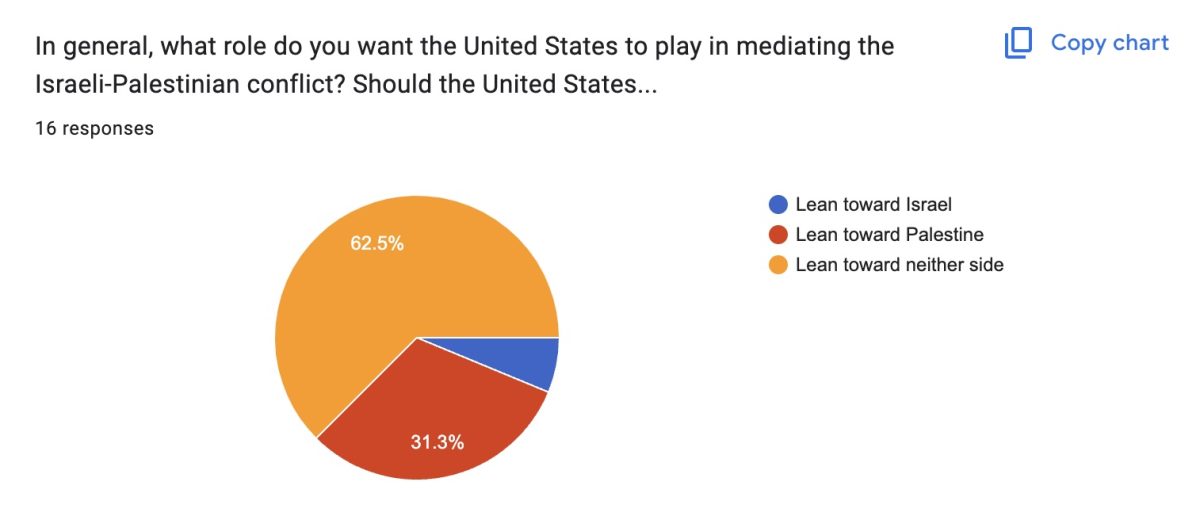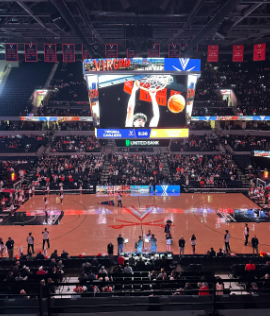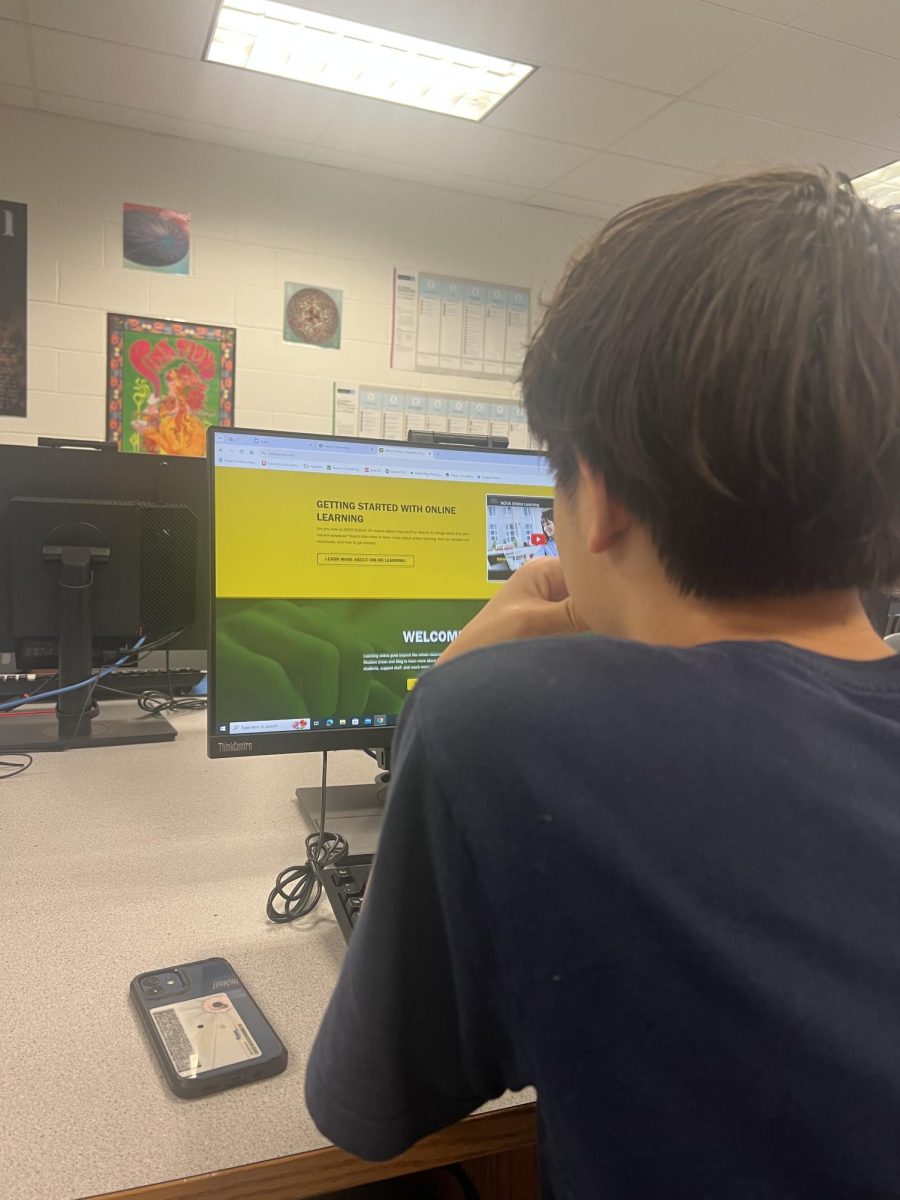Many students are taking Advanced Placement and Dual Enrollment courses seeking college credit. However, talks with students at Champe show these courses aren’t the only way to receive college credit.
Academically inclined students at Champe seek a way to compete within the already heavily competitive county that is Loudoun. However, as more and more people take AP and DE courses, the fewer colleges treat those courses as difficult, and now they are seen as a must for the top 20 colleges to even consider applications. Still, the competitive nature of these courses does not seem to be easing up, according to students taking many of these courses.
“These courses are still difficult,” sophomore Samridh Mankala said. “Yet, colleges don’t value them like they used to. These days, it seems like colleges are expecting so much from us. I still think AP courses are very useful, but I’m definitely considering other options.”
Another aspect of students seeking college credit is the financial aspect. Students who don’t exactly want to spend tens of thousands of dollars on tuition for classes every year in college look for ways to decrease those prices. The most convenient way to decrease these prices with the support of Loudoun County is by taking AP and DE courses. These courses allow for college credits which saves money in college, because you don’t have to take those courses again. For example, Loudoun County pays for the first four AP exams that will be taken by any given student. Afterward, the students themselves have to pay for future exams. This is the advantage of AP courses over standard honors courses, according to several students.
“I really enjoy the fact that Loudoun pays for some of our studies,” junior Alexander Hoang said. “The prices for AP courses are usually steep, but Loudoun has given less financially fortunate students a way to compete in an overly competitive county.”
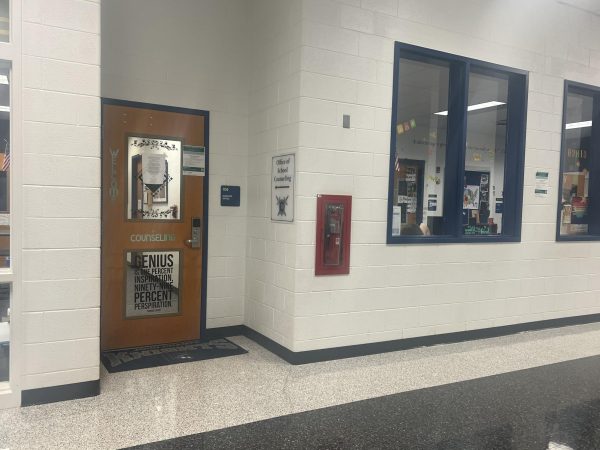
While AP courses are an essential part of the overachiever’s college application, there are lesser known ways to make sure that students don’t pay more than they have to in college. One such way of receiving college credit is courses from Stanford’s University Level Online (ULO) program. Stanford’s ULO website has many courses relating to mathematics and physics. For example, they have nine courses related to advanced mathematics, such as Real Analysis and Partial Differential Equations. Their physics courses are also advanced. Although this is a great opportunity for high school students, there are some cons. Students like junior Pius Lee have experience with these courses.
“These courses are expensive but they’re worth it,” Lee said. “These are courses I’ve been interested in taking and they’ve helped me learn a lot. They are a good way to get ahead.”
The courses have relatively steep prices to them, being $1500 for three credits. However, it is not completely asynchronous, with teachers teaching the course every week for 1-2 hours. There are required exams at the end of the semester that determine whether or not the college courses count as credit. There are generally two to three exams per course, and larger courses tend to have graded homework. Also, not all colleges will accept these credits. For example, Harvard College does not accept any outside credit taken before freshman year of college, but Carnegie Mellon University accepts these courses, but only if the final course grade is a B or above.
“It’s really a case-by-case basis,” Lee said , “but there’s honestly pretty generous curves and it’s worth taking regardless of getting the credit.”
Despite the steep price tag of the Stanford courses, there is a more economically beneficial option to choose for students who cannot justify the $1500 price tag behind the Stanford ULO courses. One small consideration, however, is that Stanford ULO offers financial aid. NOVA Community College (NVCC) offers college courses for $186 per credit online. This means that math courses which go for three credits are offered at $558, and other primary courses are offered at $744. This is an option that gives the credit of advanced courses, without the hefty price tag. The issue with this is that credits might be more contentious than if the classes were taken at Stanford.
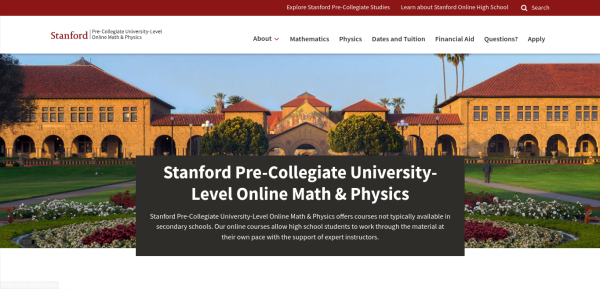
“Even though I don’t take any courses with NVCC currently,” sophomore Surya Subramaniam said, “I still think that it’s very useful and it’s a good way for students to gain knowledge in a field they’re passionate about.”
Another advantage of the NVCC courses is the variety of courses offered by NVCC. It must be considered that NVCC offers different types of courses, while Stanford ULO specializes in specific courses related to mathematics and physics. This is important for students because some students who are trying to get ahead may not be interested in STEM courses.
“I looked through the courses and I really enjoy the variety that they have,” Subramaniam said. “The process seems a little complicated, but I’m definitely interested in this program.”
The competition to get into prestigious colleges can be a stressor for many, but it is important to remember that prestige isn’t everything. These supplemental courses are meant for those who are passionate about their fields and wish to enhance their knowledge, not necessarily for those who simply seek to overachieve.
“The amount of people who think that getting into an Ivy League school is the end all be all is concerning,” Hoang said. “It’s good to have ambition, but supplemental courses are for passionate people, that’s what I think.”


